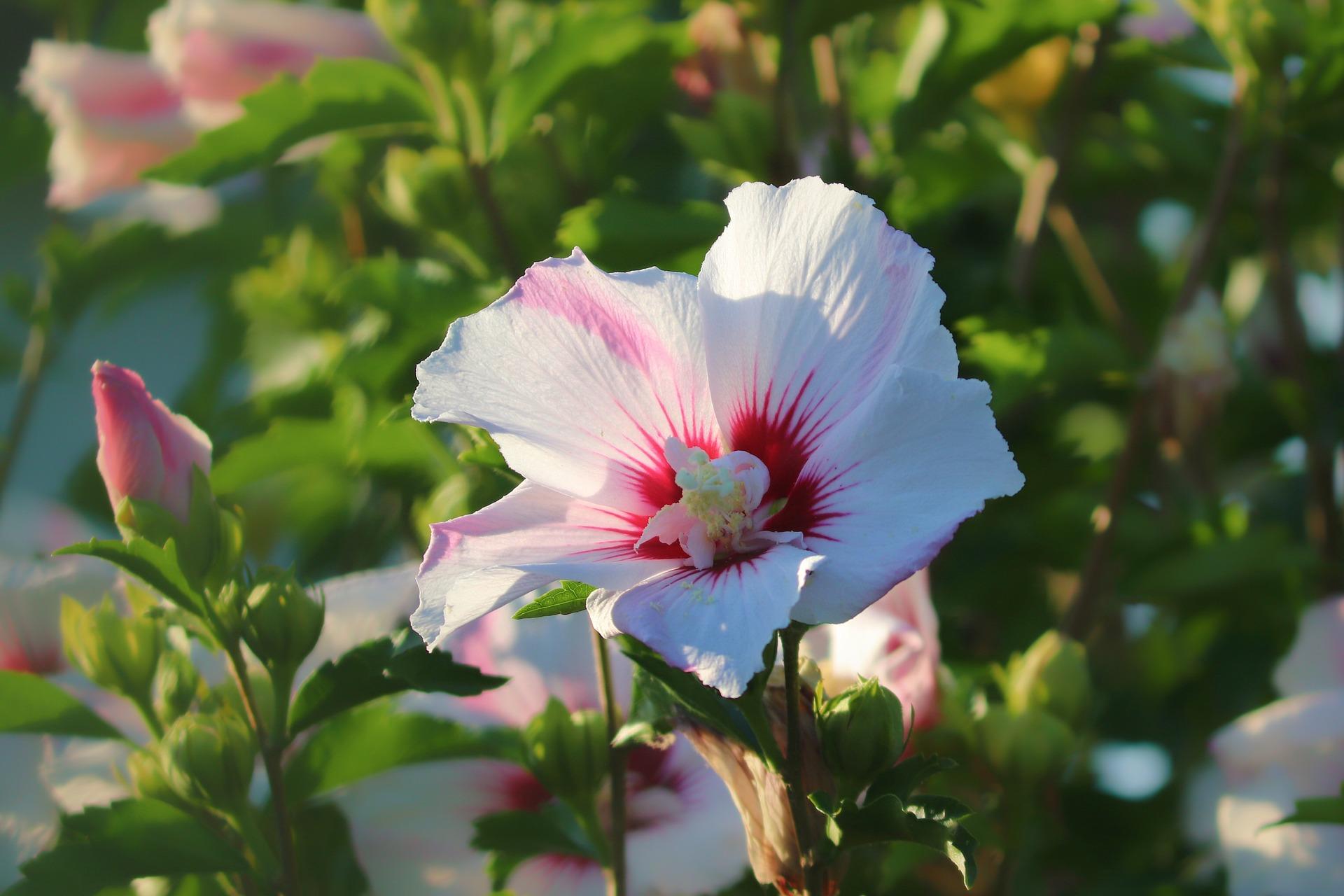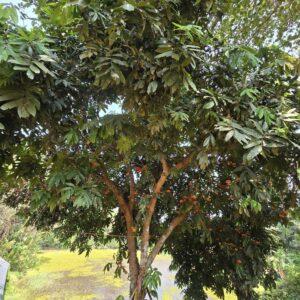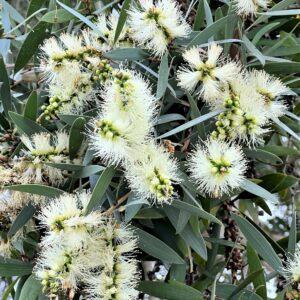Double Petal Hibiscus The Layered Tropical Beauty
The Double Petal Hibiscus is a cultivated variety of the classic Hibiscus rosa-sinensis and is known for its multiple layers of petals that resemble a miniature peony or carnation. Available in a variety of colors—such as red, pink, yellow, peach, and orange—these blooms stand out with their lush, voluminous appearance and dramatic tropical flair.
Native to Asia, hibiscus plants are widely grown in tropical and subtropical gardens, and double varieties are especially prized for ornamental landscaping, flower offerings, and home decor.
🌸 General Description
Botanical name: Hibiscus rosa-sinensis (Double Petal cultivar)
Common names: Double Hibiscus, Layered Hibiscus, Chinese Hibiscus, Gudhal (Hindi/Urdu)
Plant type: Evergreen flowering shrub
Height: 3–8 feet (can grow taller if left unpruned)
Spread: 3–6 feet
Leaves: Glossy, deep green, oval with serrated edges
Flowers: Large, double-layered petals; ruffled and showy
Fragrance: Mild to none
Blooming season: Spring through fall (year-round in warm areas)
☀️ Light and Temperature Requirements
Sunlight:
Prefers full sun (at least 6 hours daily) for abundant blooms
Can tolerate partial shade, but may bloom less
Indoor hibiscus should be kept in bright, sunny spots
Temperature:
Ideal range: 18–35°C (65–95°F)
Sensitive to frost and cold drafts
Minimum: 10°C (50°F)—below this, protect or bring indoors
🌞 The more sunlight your hibiscus receives, the larger and more frequent the flowers.
💧 Watering Routine
Young plants:
Water 3 times per week, depending on weather
Established plants:
Water 1–2 times per week in warm months
Keep soil evenly moist, but avoid waterlogging
Container plants: Dry out faster—check the top 1 inch of soil; water when dry
💧 Use rainwater or filtered water if your tap water is hard (hibiscus can be sensitive to salts).
🌱 Soil and Fertilizer Needs
Soil:
Well-draining, loamy soil enriched with compost or organic matter
pH: 6.0 to 6.8 (slightly acidic)
Fertilizer:
Use a balanced fertilizer (10-10-10) every 3–4 weeks during growing season
For enhanced blooming, switch to a phosphorus-rich fertilizer (like 5-10-10) during the flowering months
Organic supplements: banana peel tea, vermicompost, bone meal
⚠️ Avoid over-fertilizing with nitrogen—it can lead to lush foliage but fewer flowers.
✂️ Pruning and Maintenance
When to prune:
Best time is late winter or early spring
Light trimming can be done after every bloom flush
How to prune:
Remove leggy stems, dead branches, and spent blooms
Shape the plant to encourage bushy growth and more flowering shoots
✂️ Regular pruning also prevents pest infestations and improves air circulation.
🌿 Propagation Methods
Stem Cuttings (most reliable):
Take 5–6 inch cuttings from semi-hardwood stems
Dip in rooting hormone and plant in moist soil or cocopeat
Place in bright, indirect light; roots form in 3–5 weeks
Air Layering:
Ideal for larger branches; roots in 4–8 weeks
🌱 Cuttings typically flower within 6–12 months if cared for well.
🐛 Pests and Diseases
Common issues include:
Aphids, whiteflies, mealybugs, and spider mites
Fungal leaf spots or powdery mildew in humid, poorly ventilated areas
Yellowing leaves due to overwatering or nutrient imbalance
🛡️ Use neem oil spray, insecticidal soap, or introduce ladybugs as natural pest control.
Ensure proper airflow and drainage to avoid fungal problems.
🎍 Garden and Container Uses
Perfect for:
Garden borders and tropical beds
Large patio containers
Balcony pots (with sunlight)
Courtyard centerpieces
Great companions: Ixora, Jasmine, Plumbago, Mandevilla, or Bougainvillea
🌼 Double hibiscus flowers are often used for decorations, puja offerings, and natural dyeing.
✅ Conclusion
The Double Petal Hibiscus is a stunning tropical showstopper that offers voluminous blooms, easy care, and a long flowering season. With sunlight, regular watering, and a little pruning, it will flourish and reward you with gorgeous, ruffled flowers that look almost too perfect to be real. Whether in the garden or a container, it’s a low-fuss, high-impact addition to your green space.
“





Reviews
There are no reviews yet.